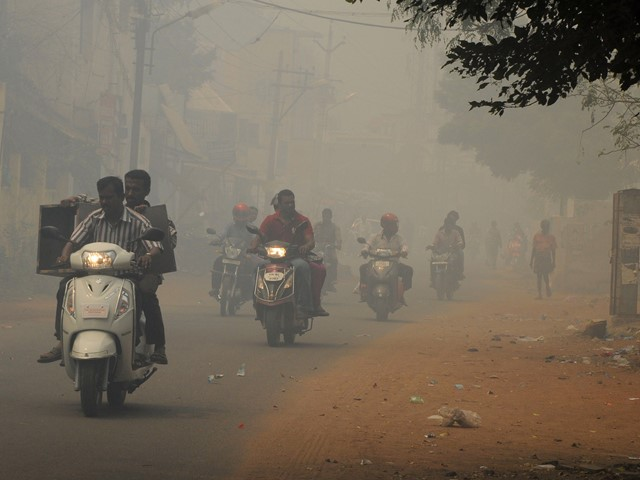CLEAN AIR CATALYST, AN INITIATIVE TO COMBAT AIR POLLUTION LAUNCHED BY USAID
Author: Femi Mariam
Urbanisation had a tremendous impact on the socio-economic conditions of developing countries. When we take into consideration the middle and low-income countries, the effect of urbanisation on the environment is quite terrifying. Environmental deterioration has been occurring at a rapid rate in such countries as a result of unregulated urbanisation, resulting in several issues such as land insecurity, deteriorating water quality, excessive air pollution, noise, and waste disposal issues which have adversely affected the health of the citizens.
As per reports, nine out of ten people breathe bad air, increasing the mortality rates and resulting in over six million premature deaths yearly. Industrialisation escalated the rates of fossil fuel combustion and industrial emissions, which has given rise to poor air quality along with issues like global warming, threatening the lives of thousands of people living across the globe.
This year, the U.S. Agency for International Development (USAID) has launched Clean Air Catalyst, a new flagship program to combat air pollution, along with a global consortium of organizations led by the World Resources Institute (WRI) and the Environmental Defense Fund (EDF). The project aims at improving air quality by tackling the issue at different levels. It addresses the gap between the recognition of the problem and awareness of the solution, with an understanding that air quality management can be highly expensive with unevenly distributed costs and benefits.
Several cities that suffer from air pollution lack the technology and information needed to identify and address the sources and causes of pollution. Even though industrial emissions remains a major reason for poor air quality, other factors like weather and geographic conditions or human activities like waste burning could also affect the air quality. Anyhow, even after identifying the sources of pollution, the process of addressing and controlling the issue becomes a challenge as most of the sources remains indispensable or deeply ingrained in the society and its economy.
Clean Air Catalyst is hence implementing a unique data-to-impact approach to scale up clean air action in Indore, India, Jakarta and Indonesia, to overcome these constraints. The strategy is to build trust in air pollution information among a diverse group of local stakeholders, including scientists, health professionals, government representatives, journalists, businesses, environmental advocates, and those most impacted by pollution, particularly women. The project works with local communities in India and Indonesia to understand local pollution sources better and to identify, test, accelerate, and scale solutions for cleaner, healthier air.
The project tries to expand source awareness and addresses key information gaps through improved air monitoring and science. It is aimed at making efforts in identifying the most appropriate measures for eliminating the root causes of specific emissions activities, such as social, political, and cultural aspects and at the same time, creating strategic collaborations that bring public, private, and community stakeholders together to work on lowering emissions.
The Clean Air Catalyst focuses on locally designed, cost-effective, and sustainable air quality measures that can help reduce pollution and achieve health, climate, and equality goals by combining scientific analysis with public participation.
Image credits: Dreamstime














Add Comment